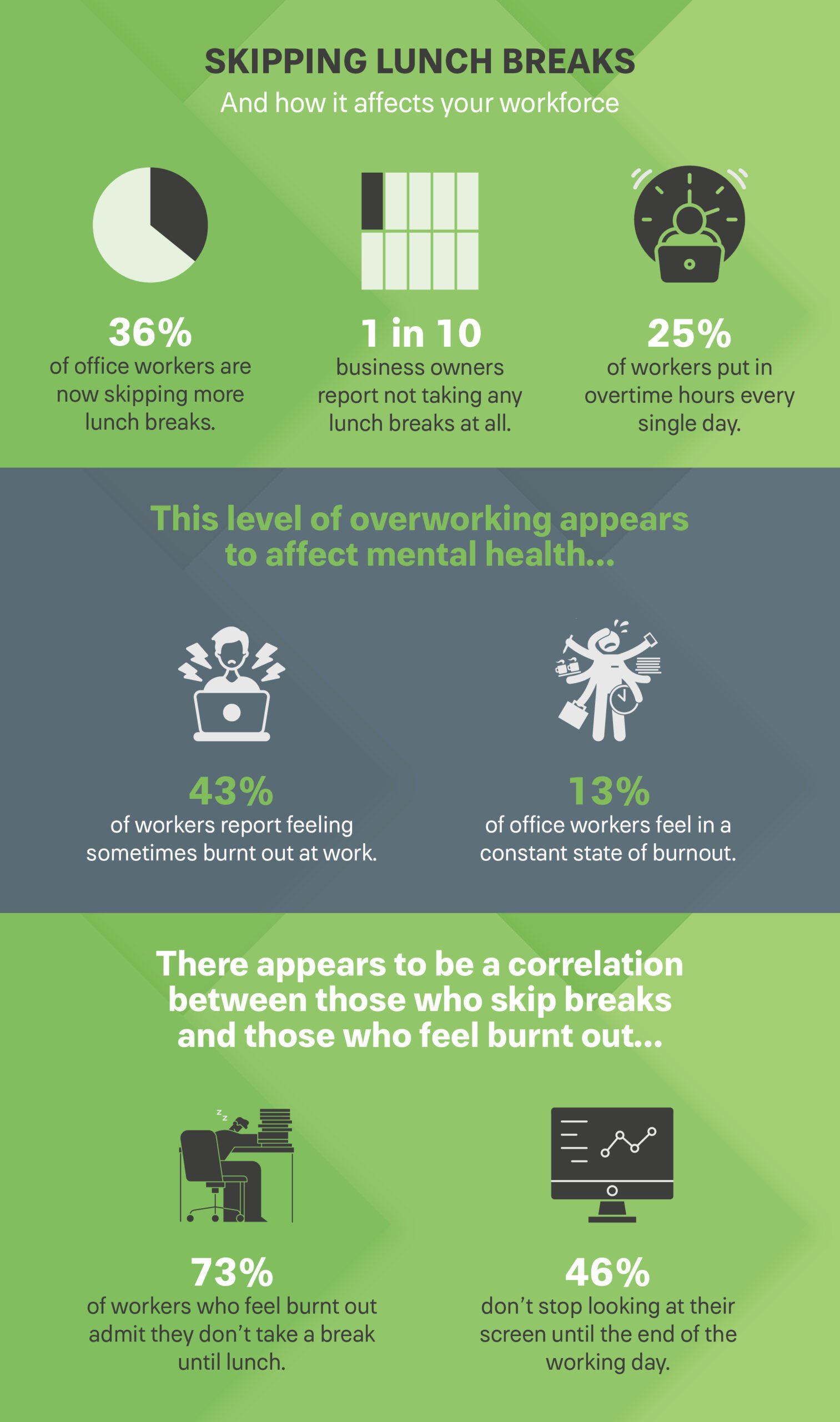Over a third (36%) of UK workers are now skipping more breaks than last year, according to a new survey. The survey included responses from over 200 UK workers, segmented by job role (business owners/C-suite, management team and executive). It found that a quarter of UK office workers are putting in overtime hours every single day, and that of those who are putting in overtime, most are business owners. There also appears to be a correlation between those who skip breaks and those who feel burnt out.
Here are the key stats:


How can HR teams help?
When it comes to employees working from home, HR should focus on encouraging them to take regular breaks – whether at lunch or from screens – to avoid such mental health implications.
When there is a large workload there can be a temptation not to take a break. But trying to maintain focus for long periods of time is also counterproductive: over time, our mental energy depletes. We also need food to restore our energy, so skipping lunch is never a good idea.
Employers and employees need to prioritise sustainable and healthy working habits, including taking more regular screen breaks. HR teams may consider organising regular events that encourage time away from screens and present opportunities to socialise with colleagues, such as catered weekly lunches or lunchtime walking clubs.
Do you need help planning wellness initiatives and decreasing burnout in 2022?
The key takeaway is that HR teams must stress to employees that it is essential to take regular breaks. Whether employees are working in the office or at home, regular breaks play an important role in avoiding burnout.
If you’re looking for ideas and advice on what wellness initiatives to deploy in your company in 2022 Phase 3 can help. We help HR teams improve their processes and find the right HR software for their needs. If you’d like to hear how we can help you contact us here to find out more.



